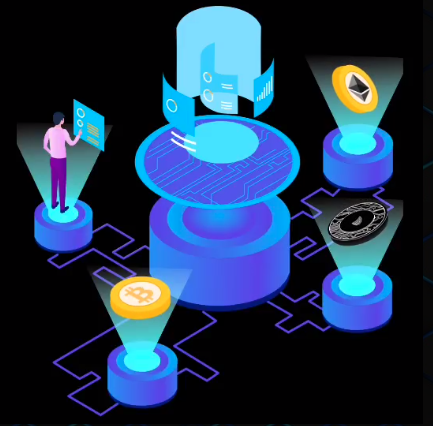What Is Smart Contract & Why It Is So Important In Cryptocurrency The Brief History Is Given Below?

- What is a smart contract security audit Definition?
A smart contract audit provides an in-depth analysis of a project’s smart contracts. These contracts safeguard investments made through them because transactions on the blockchain are final. If funds are stolen, they can’t be recovered.
What Is a Smart Contract Security Audit?
A smart contract security audit provides a detailed analysis of a project’s smart contracts. These contracts are important to safeguard funds invested through them since all transactions on the blockchain are final. If funds are stolen, they cannot be recovered. An auditor examines the code of smart contracts, produces a report, and provides it to the project for them to work with. A final report is then issued detailing any outstanding errors and the work is already done to correct performance and security issues.
- Introduction
Smart contract security audits are very common in Decentralized Finance (Defi). If you’ve invested in a blockchain project, you might have made your decision partly based on the results of a smart contract code review.
Despite the importance of audits for cybersecurity, not many people are willing to dive into the lines of code. Here are the methods, tools, and results typically observed in smart contract security audits so that you can make more informed decisions.
What is a smart contract audit?
Smart contract security audits examine and comment on the smart contract code of a project. Defi contracts are usually written in Solidity programming language and provided via GitHub Security audits are especially useful for Defi projects with blockchain transactions worth millions of dollars or with a large number of players. The audits usually follow a four-step process:
- Smart contracts are provided to the audit team for initial analysis.
- The audit team presents its findings to the project team.
- The project team makes changes to the smart contracts based on the findings of the audit team.
- The audit team releases its final report, considering any new changes or outstanding errors.
For many crypto users, smart contract audits are essential when investing in new Defi projects. It’s become a standard for projects that want to be taken seriously. Certain audit providers are also seen as industry leaders, making their audits more valuable to investors.
Why do we need smart contract audits?
As smart contracts contain vast amounts of value, they become attractive targets for malicious attacks from hackers. Minor coding mistakes can lead to massive sums of money being stolen. The DAO hack on the Ethereum blockchain took roughly 60 million dollars of ETH and even caused the Ethereum network to hard fork.
As blockchain transactions are irreversible, ensuring that a project’s code is secure is essential. Because blockchain technology is highly secure, it’s difficult to retrieve funds and resolve issues after the fact, so it’s better to prevent vulnerabilities ahead of time.
How do smart contract audits work?
Smart contracts audits follow a fairly standard process among audit providers. While each auditor’s approach may vary slightly, the typical process is as follows:
- A specification helps the audit team understand the project’s goals when writing and using the code. Smart contracts and project specifications are determined by the project (their purpose) and the overall architecture.
- Providing an initial quote based on the amount of work needed.
- Running tests. Their exact nature will vary depending on the auditing team, their analysis tools, and their methods. Normally both manual and automated tests are conducted.
- Provide the project team with a first draft of the report with errors found for feedback and follow-up corrections.
- Publish the final report after considering any actions taken by the project team to address raised issues.
Smart contract audit methods
Gas efficiency
Audits of smart contracts don’t just look at blockchain security; they also examine efficiency and optimization. Some contracts require a series of complicated transactions in order to function. As gas fees on networks such as Ethereum are relatively high, efficient contracts can save a lot on transaction costs.
Optimizing their performance is also an indication of a developer’s skill. Inefficient steps create more points of failure and should be avoided. Smart contracts may fail to execute if gas costs are high, and even more so if one uses a low gas limit.
Contract vulnerabilities
Most audit works involve checking contracts for security vulnerabilities. While some issues can be obvious, many exploits use advanced techniques and strategies to drain funds. As an example, market manipulation can be used with weak smart contracts to conduct flash loan attacks. To identify these vulnerabilities, auditors use break testing to simulate a malicious attack on the smart contract. Common vulnerabilities include:
1. When a smart contract makes an external call to another external contract before any effects have been resolved. Therefore, the external contract can recursively call the original smart contract and interact with it in ways it shouldn’t be able to, since the original contract’s balance hasn’t been updated yet.
2. Integer overflows and underflows: Whenever a smart contract performs an arithmetic operation, but the output exceeds the storage capacity (usually 18 decimal places). This can result in incorrect amounts being calculated.
3. Front running opportunities: Front running opportunities: Badly structured code can provide forewarning of market purchases or sales. Other people will be able to use this information and trade on it for their own gain.
Platform security flaws
The majority of audits look at the blockchain hosting the contracts, as well as the API used to interact with the DApp. A project may be vulnerable to a DDoS attack or have its website UI compromised, which could lead to users connecting their wallets to malicious blockchain apps.
What is an audit report?
Audit reports are provided at the end of the audit process. Projects are expected to share their findings with the community. Most reports categorize issues by severity, such as critical, major, minor, etc. The report will also include the issue’s status, as projects are given time to resolve it before the final report is released.
In addition to an executive summary, the standard report contains recommendations, examples of redundant code, and a full breakdown of coding errors. The project is given time to act on the report’s findings before the final version is made available.
Where can I get a smart contract audit?
Two of these services have become particularly popular, and getting an audit from them will require an initial quote and handover of information.
CertiK
In terms of smart contract audits, CertiK is the industry leader. Hundreds of projects have audited their smart contracts with them, including PancakeSwap, BSC’s largest Automated Market Maker (AMM).

Moreover, Binance Labs’ vast majority of projects have been audited by CertiK. CertiK releases a leaderboard of audited projects with a safety score that allows you to compare them. CertiK covers BSC and Polygon projects in addition to Ethereum.

ConsenSys Diligence
ConsenSys, run by Joseph Lubin, a co-founder of Ethereum, is one of the biggest names in blockchain development in the cryptocurrency industry. The company offers smart contract audits for Ethereum. In addition, they offer an automated service that checks Ethereum Virtual Machine (EVM) contracts for errors commonly found.
How much does a smart contract audit cost?
A smart contract audit will cost thousands of dollars depending on the amount to be audited. A large project can easily exceed $10,000. How much you pay will also be affected by the audit company and its reputation
Closing thoughts
For investors and users, smart contract audits have become a gold standard. However, when every project has one, it’s no longer an easy indicator of value. You should always read the audit yourself. Even if you don’t have the technical knowledge, you should take a look at the comments and the severity of potential issues.
As always, before making any investment decision, be sure to look at the whole picture and to take all information into account.

